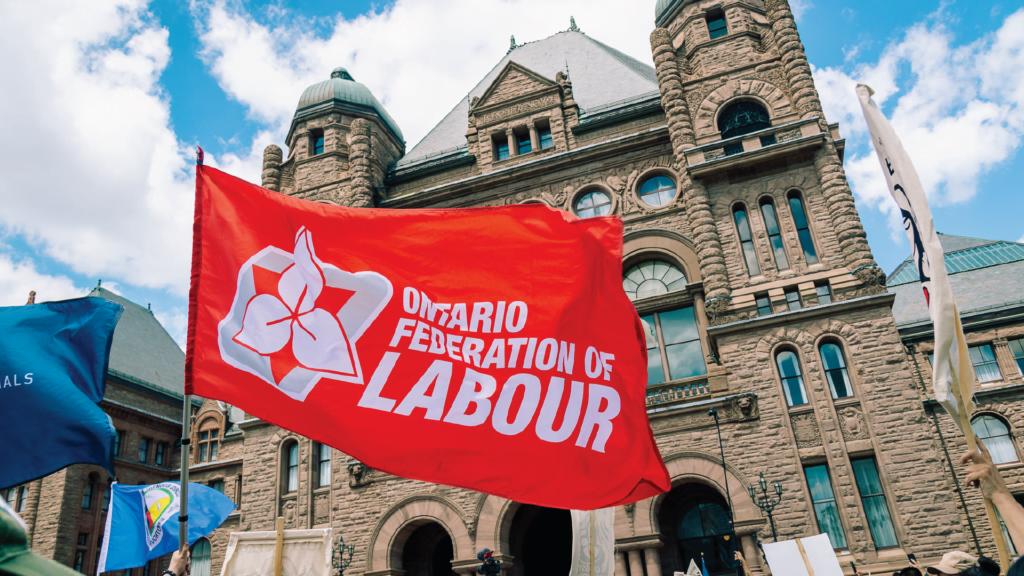City spaces were occupied by workers across Ontario on Saturday, June 3, with nearly 10,000 protesters being mobilized in Toronto alone. The “Enough is Enough” campaign, launched by the Ontario Federation of Labour (OFL), has been a response to the the cost-of-living crisis that has taken ahold across the entire country, leaving wages suppressed and stagnant in the face of rampant inflation, food, fuel, and housing unaffordable, and basic healthcare becoming unavailable for millions of people.
In Guelph, demonstrators marched from City Hall to Guelph General Hospital to show their support for medical workers. Since 2019, the application of Bill 124, recently declared unconstitutional, has limited nurses’ and public sector workers’ wages to a 1% annual increase despite a $4 billion surplus in provincial healthcare funds. As Ontario has started diverting the surgical backlog it created from the public sector into private clinics, healthcare workers were eager to speak out about the levels of neglect they and the entire Ontario public healthcare system have been facing.
“During the pandemic, everyone’s heard the stories, policies weren’t always in the patients best favour” says Ashley, a registered practicing nurse: “unfortunately, there’s been a lot of that”.
Reports of hospital closures in rural Ontario have been ongoing since late 2022. In Huron County, Wingham, Seaforth, and Clinton hospitals have been on rotating closures for up to five weekends in a row due to nursing shortages. The South Grey-Bruce Health Unit in Chesley and the Perth Hospital have been met with similar closures. The town of Minden, located approximately 100km north of Peterborough, had to close its ER on June 1 of this year.


Be part of the conversation!
Only subscribers can comment. Subscribe to The North Star to join the conversation under our articles with our journalists and fellow community members. If you’re already subscribed, log in.